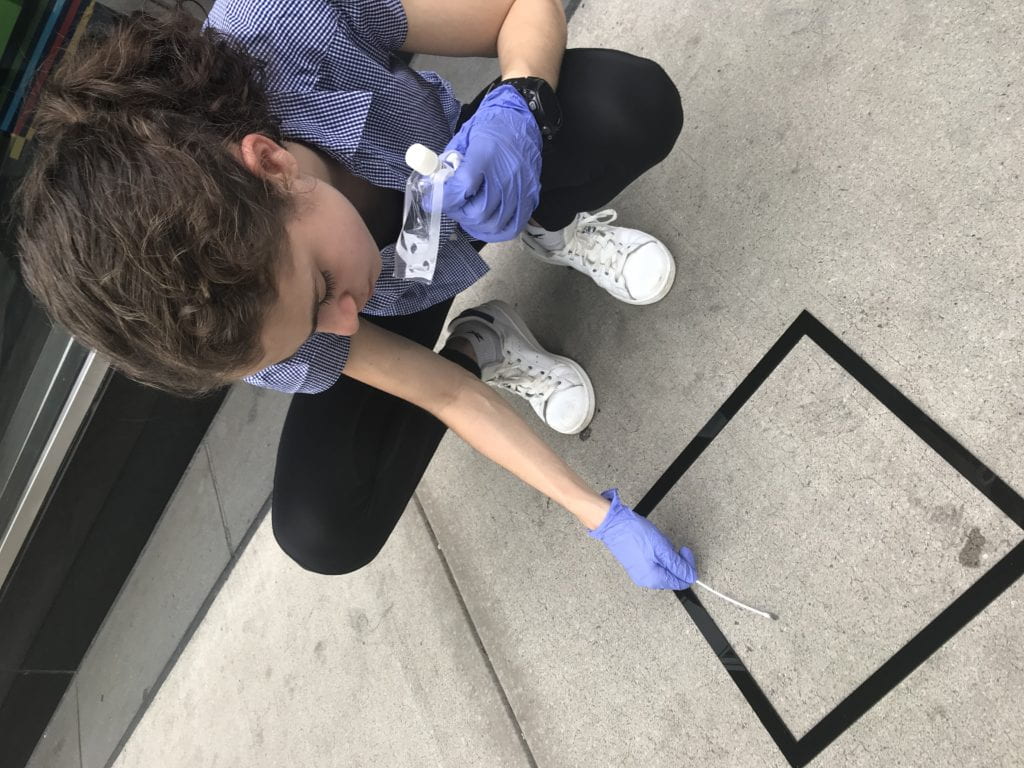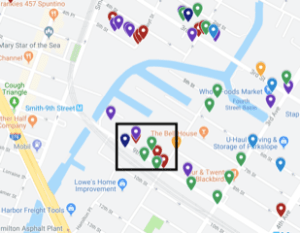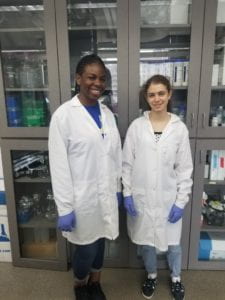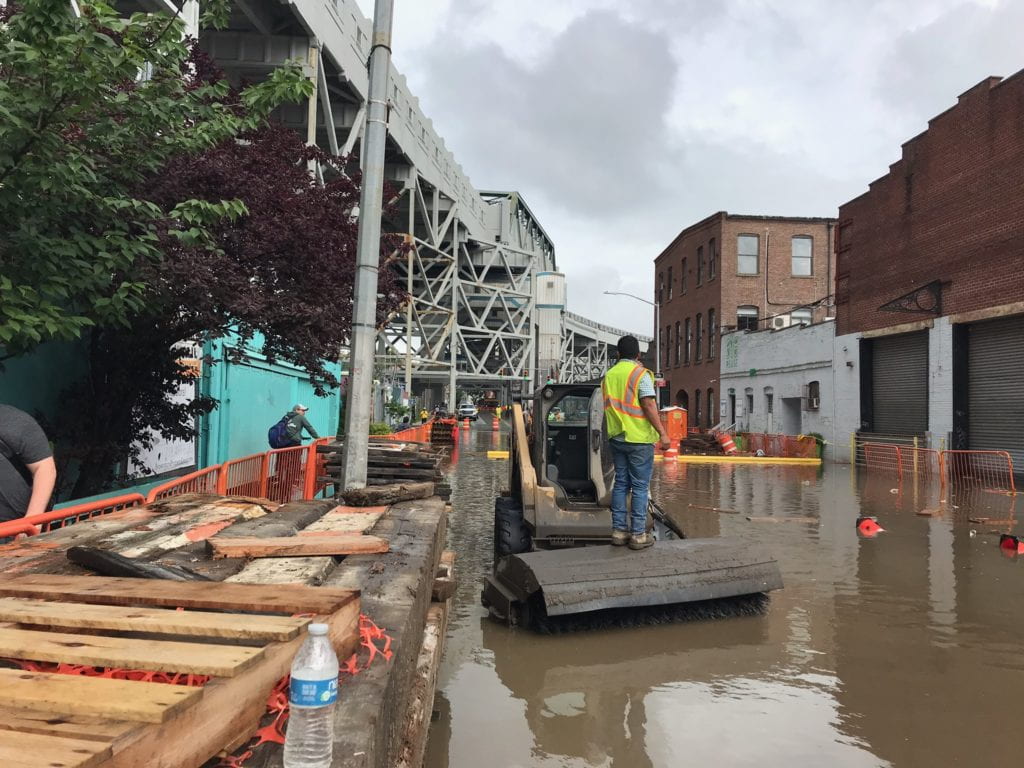Post by Zoë and Modupe (ARISE student researchers)
Before we could even begin sampling at the Gowanus, we had to determine the best method for DNA collection and extraction. To do this, we tested the sidewalks right in Metrotech center. Each day we altered a different variable in the collection process, with the goal of increasing DNA yield. To prepare for swabbing, we packed a box with the needed supplies: the frame, swabs, gloves, ethanol and napkins (to clean the frame) and a marker for labeling. Once we were ready, we headed outside to begin swabbing. Because of the natural variety in the sidewalks, we were careful to choose areas right next to each other and of similar appearance. We took turns swabbing the sidewalk, stopping at the halfway point of each trial to re-dip the swab in the elution fluid. After we had collected all of the samples for a given day, we went to the lab for culturing and DNA extraction — and next the DNA quantification and analysis. Over the weeks we tested two elution fluids (aimes fluid and 0.15M NaCl + 0.1% Tween 20), two frame sizes (20×20 cm. and 30×30 cm), three swabbing surfaces (concrete, slate, and cobblestone), and swabbing times from two minutes to six. Based on the DNA quantification results, we determined to ideal mechanism:
- Swabbing Procedure: Swab the concrete inside a 30×30 cm. frame for 3 minutes, pausing at 1:30 to re-dip the swab. Use the amies elution fluid and swab vigorously, making sure to cover the whole area.



